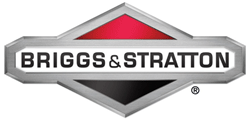Appliance Parts
- Accessories
- Dishwasher
- Dryer
- Stove / Oven
- Microwave
- Refrigerator
- Washer
- See more... See less...
Lawn Equipment Parts
- Lawn Mower
- Chainsaw
- Blower
- Generator
- Air Compressor
- Lawn Tractor
- Pressure Washer
- See more... See less...
Energy Saving Tips: Using Your Appliances More Efficiently
Saving energy can help cut your household costs and benefit the environment. A significant portion of energy expenditure in the home goes into running appliances. Making sure appliances run efficiently can reduce waste and make for a more environmentally friendly home. There are opportunities for saving energy in appliances throughout the home.
Energy Saving Tips for the Washing Machine
To conserve energy when using a washing machine, always run as large a load as possible. This cuts down on both water and energy use. Use cold water whenever possible to reduce the energy cost associated with heating the water. Front-loading washing machines use less water than top-loading models and can significantly save on energy, so replacing an old model can save money in the long term.
Using Top-Loading Washing Machine: Energy Savings Calculator: A tool to calculate how much energy you can save by using a top-loading washing machine instead of a front-loading model.
Clothes Washers: Energy Star: An overview of energy saving washing machines qualified by Energy Star, a nationwide energy saving program backed by the U.S. Department of Energy and the U.S. Environmental Protection Agency.
Recycle Your Old Clothes Washer: A guide to recycling an energy wasting washing machine.
Finding Clothes Washers: Energy Star: A tool for finding an Energy Star qualified washing machine
Buying a Washing Machine: A guide on how to shop for a washing machine with energy efficiency in mind; includes tips on efficient practices.
Energy Saving Tips for the Dryer
To have a more energy efficient home, cut down on the number of times each week you run the dryer. Line drying is a much more energy efficient method. When using the dryer, make sure the lint screen is clean. Use the minimum heat and drying time to dry your laundry.
Clothes Washers and Dryers Best Practices: Tips on using a washing machine and dryer efficiently.
Energy Note: Buying and Using Clothes Washers and Dryers: A guide to efficient use and maintenance and purchasing tips for washing machines and dryers.
Energy Savers Tips: Laundry: A list of tips on saving energy with a washing machine & dryer, including purchasing and usage advice
Public Housing Energy Conservation Clearinghouse: Laundry: Energy saving tips for washing machines and dryers, including information on energy saving features available in new dryer models.
Energy Saving Tips for the Refrigerator
Unlike many other appliances, refrigerators run around the clock. They often consume more energy than any other household appliance. It is not feasible to save energy with a refrigerator simply by turning it on less often. The best way to save energy with a refrigerator is to purchase an energy efficient model, such as those qualified by Energy Star.
Energy Savers Tips: Refrigerators: A list of tips on saving energy with a refrigerator and freezer, including purchasing and usage advice; also includes general tips on saving energy in the kitchen.
Energy Series: What about Refrigerators and Freezers?: An article on how to buy and operate an energy efficient refrigerator, including information on recycling old refrigerators.
Refrigerators: Energy Star: An overview of energy saving refrigerators qualified by Energy Star.
Energy Star Savings Calculator for Refrigerators: A tool to calculate possible savings when replacing an old refrigerator with an Energy Star refrigerator.
Finding Refrigerators and Freezers: Energy Star: A tool for finding an Energy Star qualified refrigerator
Energy Saving Tips for the Dishwasher
Like the washing machine and refrigerator, the dishwasher has seen great improvements in energy efficiency in recent years. Replacing an old model with a more energy efficient one can conserve water and energy and lower monthly bills. To save energy when using a dishwasher, choose the air dry or no heat option for the drying cycle. Only run the dishwasher when it is fully loaded.
Dishwashers: Energy Star: An overview of energy saving dishwashers qualified by Energy Star.
Finding Dishwashers: Energy Star: A tool for finding an Energy Star qualified dishwasher.
U. S. Department of Energy Fact Sheet on Residential Dishwashers: A guide to purchasing and using dishwashers efficiently.
Energy Savers Tips: Dishwashers: A list of tips on saving energy with a dishwasher, including purchasing and usage advice.
Energy Series: What about Dishwashers?: Information and tips about saving energy with a dishwasher.
Energy Saving Tips for the Oven
To save energy when cooking with an oven, keep preheating to a minimum and make sure the oven door is fully closed so that heat does not escape. Do not use a full size oven for small cooking jobs, and do not use a pot or pan that is too large for the amount of food being cooked. Keep the oven and the stove-top clean for maximum efficiency. Gas ovens are more energy efficient than electric models, and self-cleaning models offer the best insulation.
Home Energy Saver: Cooking: A comparison of various oven types based on their energy efficiency.
Save Energy, Time, and Money When Cooking: A guide to the most efficient cooking practices and appliances.
Energy Saving Tips for the Microwave
The microwave is a very energy efficient method of cooking. It uses about 60-80% less energy than a conventional oven and is ideal for smaller cooking jobs. To save energy with a microwave, make sure to unplug it when not in use. A microwave uses energy whenever it is plugged in, even if it is turned off.
Unplug Microwave: Energy Savings Calculator: A tool to calculate how much energy you can save by unplugging your microwave when not in use.
Your Microwave Oven: A Real Time-Saver: Tips for cooking with a microwave, including an energy comparison with conventional ovens.
By following energy saving tips for each of your household appliances, you can save money, time, and energy , making your home as efficient as possible. Replacing old appliances with newer, energy efficient models can offer even more savings in the long run.
- Search your model number to find:
- Genuine OEM parts guaranteed to fit
- Free manuals and guides
- Repair instructions and videos

































